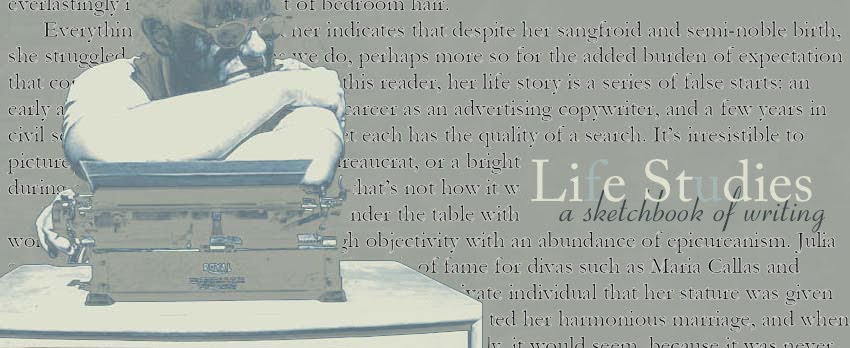Just outside the window, in the absolute last light of the July day, in which objects are visible but monochromatic, like a graphite sketch, the heads of the fleabane swayed drowsily in the breeze. I paused my episode of "The Crown" and ran outside to walk around in the chalky remnants of what had been a brilliant yet cool day. By the time I walked back inside, covered in mosquito bites, night had fallen.
All day I had wrestled buttercup roots from the ground and carried armfuls of 6-foot valerian to the dump, sidestepping stands of peppermint but bruising the knapweed. When I was skinny, and 24, and living in tiny apartments in big cities, I collected used books on wildflowers, looking at the drawings like you'd stare at a pretty word of a foreign language. Now I'm fat as a Buddha, crawling on my hands and knees to pull torpedo grass out of the iris beds, and my yard is overrun with wildflowers—crowding the embankment behind the garage, swallowing the $14.99 perennials from Home Depot, choking off the junipers and boxwood, and generally making a mockery of the prissy astilbes and peonies. Only the wild ferns and the rugosa—so rugged and ubiquitous here on the Maine coast—can hold their own in a patch of Dame's Rocket.
Contrapuntal, the different wildflowers swelled and decayed through May and June—themes within a seasonal fugue: first the blue starflower, then the delicate webs of Forget-Me-Nots like the veils of a stylish hat, then mounds of pink or yellow anemone, the sturdy towers of lupine the color of Welch's grape jelly, and then the riot of Oxeye daisies. I couldn't keep ahead of it, and, instead, I tried to take photos of the crowded flowers in the sun—always disappointed with the electronic images I got.
Under the noontime sun, the plants give off a heady aroma when broken or crushed underfoot—herbaceous, vaguely sexual, something like the stuff in those necklaces Minnie Castevet had in "Rosemary's Baby." The smell makes you stop for a minute—think about things that aren't really appropriate for your age: certain city memories of Sunday mornings in somebody else's apartment, a stranger's records playing, the furtive little adventures of one's twenties, being surprised at the end of a long party by the person who'd ignored you all night ... being surprised at all, by anything, anymore.
Then those thoughts pass, and you're up to your elbows in composted manure. The sun moves out from behind the enormous White Pine and the bee balm simply bake, stretching their stalks up like a cat's neck being scratched. Tireless, constantly dangling, the bumble bees have their work ethic. You could make tea from the water that pools in the garden hose.
With the first drink of the evening we wait for hummingbirds. I lean on the deck rail with a sweating glass of cold white wine, waiting for that mechanical whir when a bird circles my head or pauses midair in front of me in a kind of cheerful yet slightly hysterical—and always brief—greeting. The sound is like a tiny box fan on low.
Below us, an enormous embankment of yellow loosestrife grows unchecked.
There is nothing I can do. I can't keep ahead of it all. Our yard is wild. And, I think—dropping my hoedag on the floor of the shed in profound exhaustion, smelling like citronella and perspiration, my tube socks caked with dirt—that suits me just fine.
